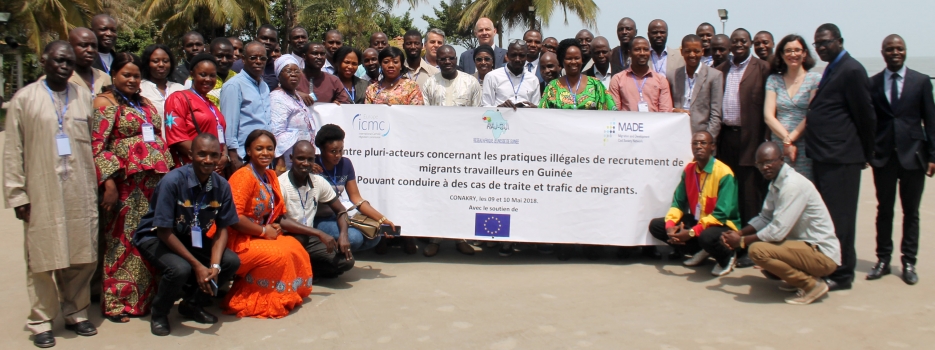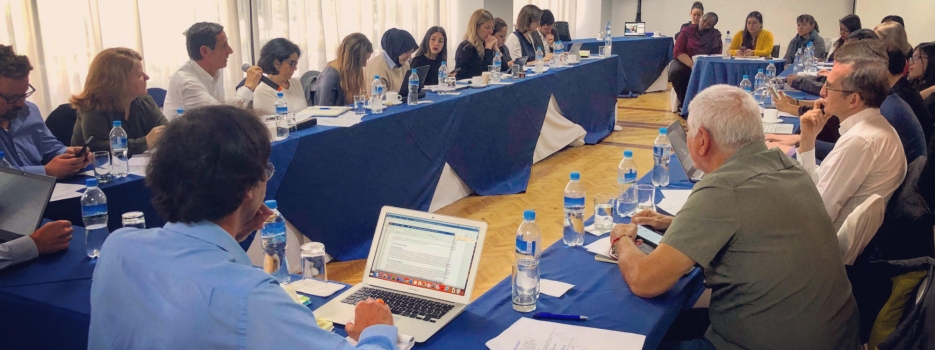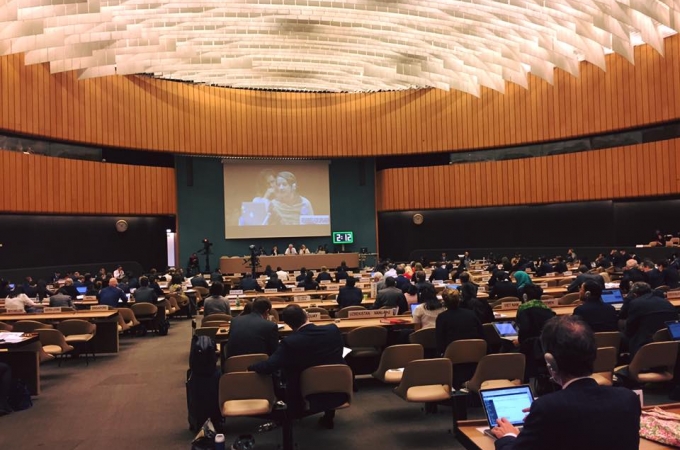On 8 and 9 May, the first Thematic consultation for the Global Compact on Migration took place at the United Nations Palais in Geneva, focusing on “Human Rights of all Migrants, social inclusion, cohesion, and all forms of discrimination, including racism, xenophobia and intolerance”. Over the 3 sessions, around 100 government delegates, 10 civil society delegates and 6 UN representatives delivered their statements. Among the civil society panellists were Michele LeVoy from PICUM, Monami Maulik from the Global Coalition on Migration and Ben Lewis from the International Detention Coalition, all part of the GFMD civil society International Steering Committee. ICMC and the MADE Network were represented by MADE Advocacy and Communication Officer Emer Groarke, who gave an intervention in the 3rd session which you can see recorded on the UN Web TV platform (Minute 2:44:00). Another remarkable intervention came from Ignacio Packer of Terre des Hommes.
The conference continues on the 10th of May with a special meeting of civil society convened by IOM to discuss upcoming regional consultations on the Migration Compact.
This is the full text of Emer’s statement:
We very much welcome the opportunity for civil society’s voice to be heard in this Thematic session, and look forward to similar opportunities to contribute to the process ahead and towards the Stocktaking meeting in December.
Given that the Global Compact for Safe, Orderly and Regular Migration cannot and must not bypass existing and binding human rights mechanisms, it is heartening to hear so many states reiterate the necessity of human rights as central to this Global Compact process, with the clear focus many are giving to the rights of vulnerable migrants in particular.
Countering racism and xenophobia and ensuring that migrants are welcomed and integrated into societies are essential for the success of any undertaking like a Global Compact for migration. Therefore it is also useful in these sessions to hear so many examples from states, civil society and others of on-the-ground activities being undertaken to tackle these growing issues. We are confident that the value of such practice-oriented content will be reflected well in the Compact.
Finally, in the spirit of building from previous experiences and practices, towards the Summit on Large Movements of Refugees and Migrants last year, over 100 civil society organizations prepared an input called A New Deal for Refugees, Migrants and Societies. One quarter of this document was dedicated to how we, collectively, can launch international action for social inclusion and against discrimination, racism and xenophobia. An interesting observation for me is that, alongside broad civil society consensus on these issues, a lot that is contained in that document has actually been expressed repeatedly and concretely by many states in these sessions yesterday and today.
Perhaps we are not so different as we may sometimes think?
© Photo: Colin Rajah





